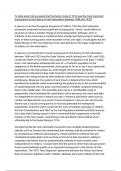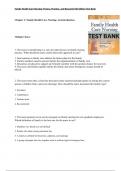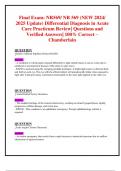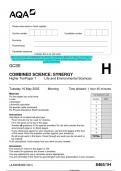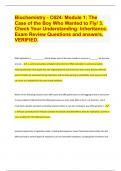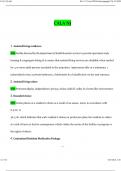Essay
To what extent do you agree that the Easter rising of 1916 was the most important turning point in the history of Irish nationalism between 1848 and 1923?
- Institution
- PEARSON (PEARSON)
An A-level standard History essay arguing that The Easter Rising can be considered the most important turning point in the history of Irish nationalism between 1848 and 1923.
[Show more]
